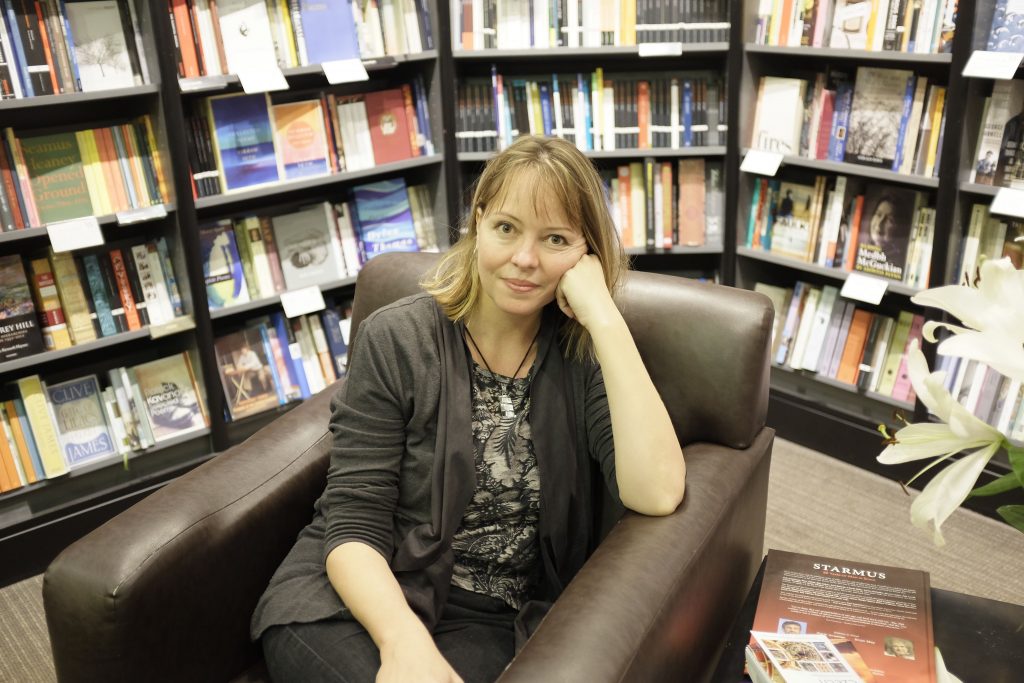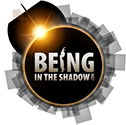
Today is a very special day. Being in the Shadow: Stories of the First-Time Eclipse Experience – my third book – has just been published. It has been quite the journey, and I wanted to share a little personal back story into how I switched from being an academic to becoming an author.
I will rewind to just before the launch of my first book Total Addiction: The Life of an Eclipse Chaser. It is September 2012. At that time, I was Assistant Course Director of a doctoral training programme in clinical psychology. I had, by then, completed honors, masters and doctoral research theses – huge academic volumes requiring seven years of work in total between them. I had also published research articles and contributed to book chapters as a psychologist and academic. After 14 years or so of clinical work, I was fully immersed in the academic world, and spent many hours per day writing. Total Addiction was a passion-project – something I did on the side.
Two days before the launch of Total Addiction, I walked through the Botanic Gardens to the Queen’s University main library to meet Julie. She was sent from Springer – the publisher – to sell books at my Belfast book launch event. She was waiting for me, sitting on an outdoor bench with a trolley bag full of books – my books. We connected instantly. We talked about what I had planned for the launch, and how she would take care of the book sales. She was asking probing questions about how I was marketing myself as an author.
I found the word ‘author’ jarring – I didn’t feel like an author. I must have frozen, as Julie had stopped talking, cocked her head to one side, and said very matter-of-factly: “Dude, why is this so difficult. Of course you are an author.”
After our meeting, I went home and googled the definition of an author, to see whether I was indeed one. (In case you are wondering: a writer of a book, article, or document). Technically, I was already an author and had been one for many years. Yet I had never called myself one, nor had I considered I was one. Even though I was about to launch my first book, I was not convinced that I was worthy of the title of author.
It took a few months before I was more comfortable with the role. By then, I had engaged in enough ‘author behaviors’ to feel like I could call myself an author. I had been doing book launch activities, had regular discussions with my publisher, was signing my books, giving author talks, and had even run author workshops. But it was all on the side of my main academic job. I was not an author when I was engaged in my academic work.
After publishing Total Addiction, I wanted to take things even further. I wanted to bridge the gap between psychology and astronomy, and translate that for a general audience in a more engaging way. I wanted to use personal stories to share the power of the total eclipse with others. I wanted to be an author who wrote about eclipses; rather than a researcher who studied them. This is where the idea for Being in the Shadow was born.
I used the 2012 total eclipse in my home region as an opportunity gather research for this next project. Following the eclipse, everyone wanted to share their stories, and I wanted to give people a place for their stories to be told. I put Being in the Shadow on hold, and I diverted my focus to publish my second book Totality: The Total Eclipse of 2012 in Far North Queensland. This was more of a souvenir book written from a community perspective. It was my way of giving back to the community, to ensure that there was a lasting record for everyone who had experienced the total eclipse. Again, I worked during the day while writing this project in the evenings. I wasn’t an author – I was simply writing another passion project on the side. The problem was that I associated being an author with the things that happen after publication, rather than the writing itself.
But after the publication of Totality in late 2013, my life fell apart. I became seriously ill. I had already started to look forward to all the author things – a launch party, promoting my talk, speaking events, author workshops. Yet I was physically not well enough to do anything, and I could no longer even function. There was nothing to mark launch day, just collapsing in an exhausted heap. My proposed launch party had to be cancelled. My new book just sat there, in boxes. To this day, Totality is a little like a ghost book to me – I wasn’t an author writing it; and I could do the author things after publication.
Anyone who has ever experienced changes in neurological functioning will know the fear of not being able to return to your former self. For a while, I thought I was never going to be able to return to a working life at all. It has actually taken me a good few years to get properly back on my feet again. Whereas in the past I could complete multiple projects while also working full time, I had to slowly build up focusing only on one thing at a time. And that one thing was eclipses. It was my passion for sharing the eclipse experience that really got me through some dark days. Now that I’m cognitively back up to speed (physically there is still some issues), I’ve been able to again work on multiple projects. Instead of writing on the side, writing became my main focus. I had finally learned that to write is to be an author. Writing about eclipses was no longer something I did on the side – I wanted it to become my main focus.
In the year it has taken me to write Being in the Shadow, I have been able to embrace the fact that I am an author.
I love the process of writing, and now I love calling myself an author. I have joined writer groups, have run more author workshops, and engage in what I consider to be author behavior. And now I have just published my third book. Today. It is a great achievement for me, on so many levels. Today, I am an author. I feel proud that I have been able to write a book that is written for a general audience – and is not academic in nature. Narrative non-fiction is a new style of writing for me, and I have a lot to learn. Having my psychology background, and using a phenomenological approach, are the reasons why this book is so unique. I can go deep into people’s experiences, and help to share their stories. It is through personal stories that we truly understand.
This time, I am going to make sure that I enjoy the achievement of publishing my third book. There will be a launch party – not today, but soon. There will be events, and author activities. There will be book promotions, and signings. All the things I was not ready to do with book one; and not able to do after publishing book two. Today, I am an author who writes about eclipses.
